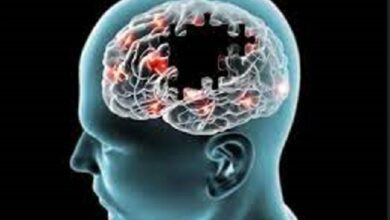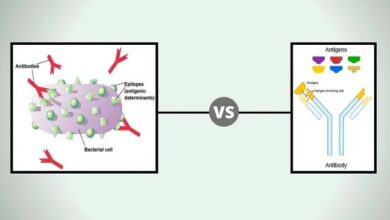What is Forensic Psychology functions of forensic psychologist
As we have explained in other posts, psychology is the science that studies human behavior and mental processes in a broad sense . These mental processes are the genesis of behavior: our thinking ends up being specified in certain tangible and observable motivations, attitudes and behaviors. In this article we will give you the information about the Forensic Psychology.
Forensic Psychology: one of the fields of psychology
But what is forensic psychology? The term forensic comes from the Latin forum . That is, the square, the public space where public trials took place in Roman times.
Thus, forensic psychology is the branch of psychology that studies and intervenes in court proceedings in order to provide data and knowledge that help solve cases. Forensic psychology professionals are forensic psychologists, and their role is to collect, study and correctly interpret the different psychological data that can provide important elements for a study.
The Roles and Skills of Forensic Psychologists
Forensic psychology professionals, in addition to psychology graduates, must have knowledge and tools of judicial, procedural and criminal law. This allows them to have the necessary background to accurately understand judicial processes and correctly apply psychological techniques in this field.
Forensic psychologists work closely with lawyers, experts, prosecutors and judges. In fact, forensic psychologists act as experts by offering their professional testimony in certain trials , providing data and knowledge of interest to collaborate with Justice and ensure that the circumstances of the case can be clarified, at least as far as it is concerned. to certain psychological and/or psychopathological aspects of some or all of the parties involved.
A psychology professional, but also a legal expert
A forensic psychologist is not simply a psychologist who performs certain tasks in a state administration of justice. In fact, he is a great master of all the concepts, norms and dynamics of the legal system in which he is located .
The forensic psychologist has a broad understanding of all legal and procedural mechanisms. In fact, if this were not the case, he could easily be excluded from certain processes in which he participated, losing the credibility of the different actors involved in the trial. The judicial system is a formal system in which methods and procedures are of paramount importance. Therefore, the forensic psychologist, in addition to being an expert in his field, must know and adapt perfectly to these regulations.
What roles does a forensic psychologist have before a court?
There are many elements and factors in which forensic psychology plays a key role in the context of a court case. To help the judge make the right decisions, the forensic psychologist makes available a series of knowledge and tools.
One of the most common functions refers to the study carried out by forensic psychologists on the mental faculties and psychological conditions of any of the parties involved in a trial (defendants, plaintiffs and even witnesses). This analysis helps to elucidate, in the case of the accused, whether they were in full use of their mental faculties at the time they allegedly committed a crime. For example, if there is a person charged with manslaughter, a forensic psychologist would have the ability to make a report indicating whether, at the time of the crime, the accused was aware of his actions.
Training a forensic psychologist
We talk about what forensic psychology is and also about the tasks performed by professionals in judicial psychology. Now , what training should a forensic psychologist be able to perform?
This point is more complicated to explain, since each country has different legislation regarding the academic training required by this type of professional. In general, we can say that to get involved in forensic psychology, the professional must have the degree or licensure’s degree or university degree in psychology, then specialize in one of these branches: organizational psychology, social psychology or clinical psychology. , the latter being especially relevant.
Then, you must do a graduate degree or a master’s degree in forensic psychology . However, it is of special interest that the forensic psychologist has extensive knowledge in the field of psychological assessment, psychopathologies and diagnostic and intervention techniques. As the forensic psychologist must help clarify whether or not the accused has a mental disorder, some of their work resembles that of a clinical psychologist, although in this case their interests and those of the person being evaluated do not usually coincide.
Role in penal and corrective measures
In addition to the above, forensic psychology also has some influence when it comes to informing and suggesting the type of treatment that a person sentenced to prison should follow. Thus, the judge can count on more elements to decide how he will execute the sentence and what corrective measures will be imposed .
Forensic Psychology collaborates and describes, but does not judge
Importantly: forensic psychology can help a judge determine certain psychological factors of the parties involved in a court case; It can explain a person’s behavior to make it more understandable that they were a victim or aggressor in certain circumstances. This information is provided to the court so that it can make an informed decision on the facts.
However, the forensic psychologist is not empowered to defend or act as a prosecutor for any of the parties involved in a lawsuit . Its function is descriptive and informative and therefore must be completely neutral.
Courts often ask the forensic psychologist very specific questions, always related to the case at trial and around the different psychological variables that may have influenced the facts. The community was welcomed with affection by its members. To distinguish himself from the others, the neophyte wore white clothing. In Christian religious terminology with which the different judicial actors express themselves is that of the legal field and, therefore , the forensic psychologist is also expected to adhere to a single language that is consistent with the context .
In other words, the different actors involved in the judicial process (judge, lawyers, prosecutors and jury) need to know the direct effects of the psychological state of any of those involved in order to determine to what extent they are responsible for their actions. In this sense, it must be clarified that it would not make sense for the forensic psychologist to ramble on about the psychic state of any of the judged parties beyond the task entrusted to him, which is to provide light on the psychological circumstances of the parties involved during the process. the facts being judged and, by extension, the treatment that should be given to either party, if necessary.
Guilt, responsibility, exemptions…
Forensic psychologists tend to be controversial with some frequency. This is because, as judicial professionals, they also have the power to influence the decisions of the courts of law . For example, forensic psychologists may point out the desirability of blaming an accused on the grounds that, at the time of events, he was not aware of her actions. Therefore, they have the ability to release an individual, even if he was the material perpetrator of a crime.
Likewise, forensic psychologists may also advise that aggravating or mitigating measures be applied to certain crimes, indications that may impact the conviction imposed on the accused.
These functions always involve great controversy . For example, in the case of a defendant who murdered a child, if he is declared incontestable on clinical (psychiatric) grounds, the family of the murdered child may explode in anger against that decision, even if it has strict clinical grounds.
However, and although I can generate all kinds of social debates, the truth is that forensic psychology contributes decisively to the fact that justice can be done in a balanced and fair way, if I am allowed redundancy.




